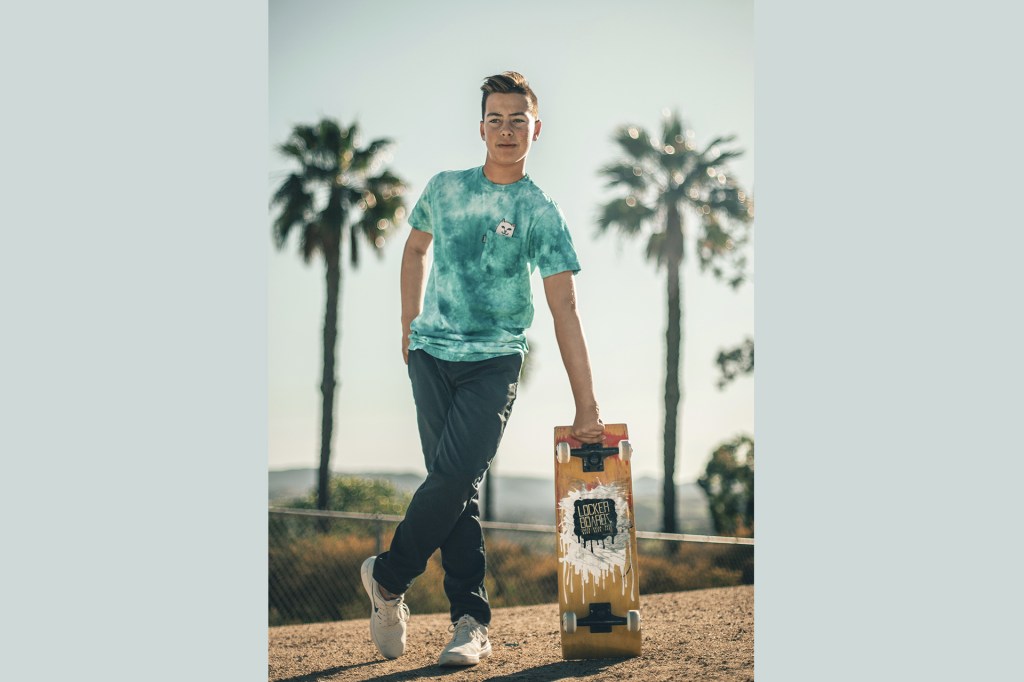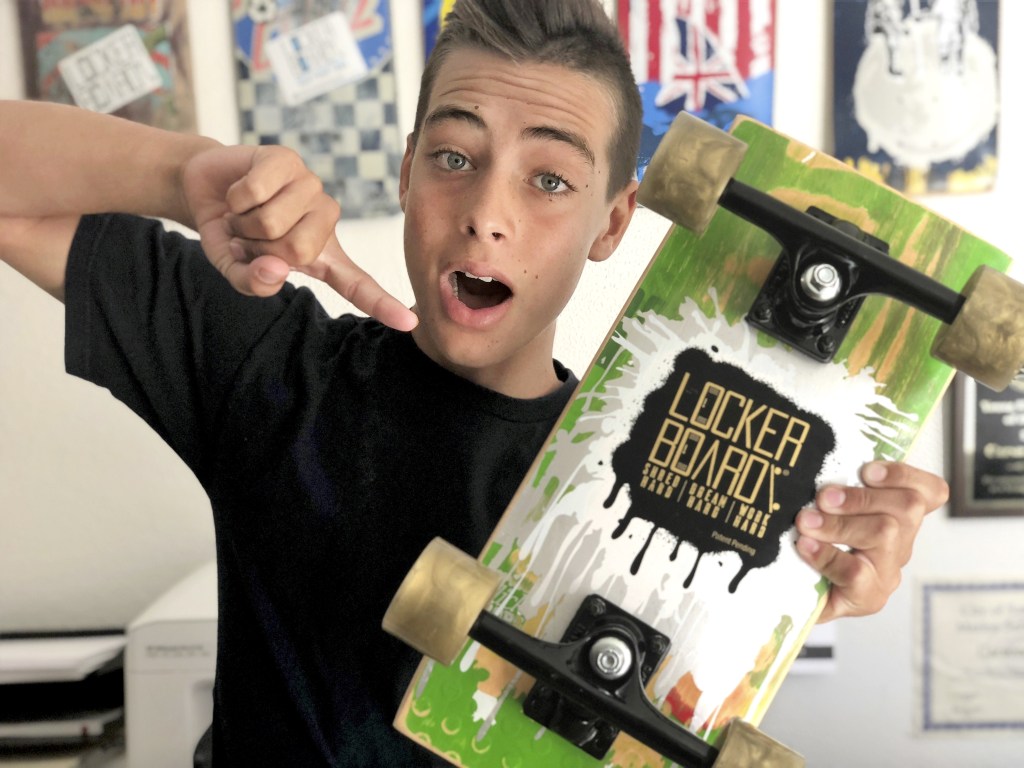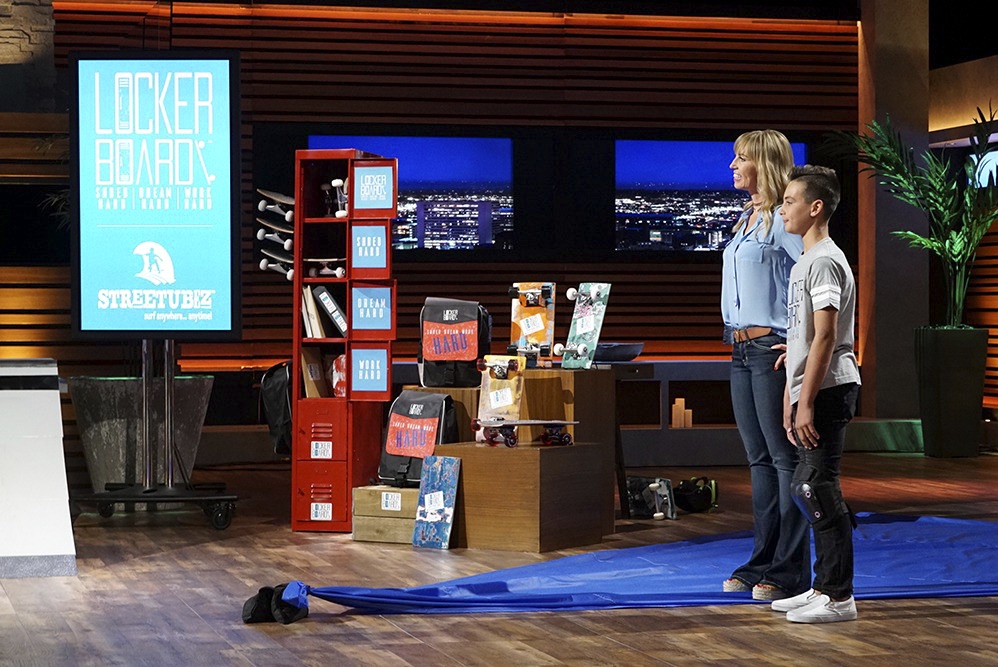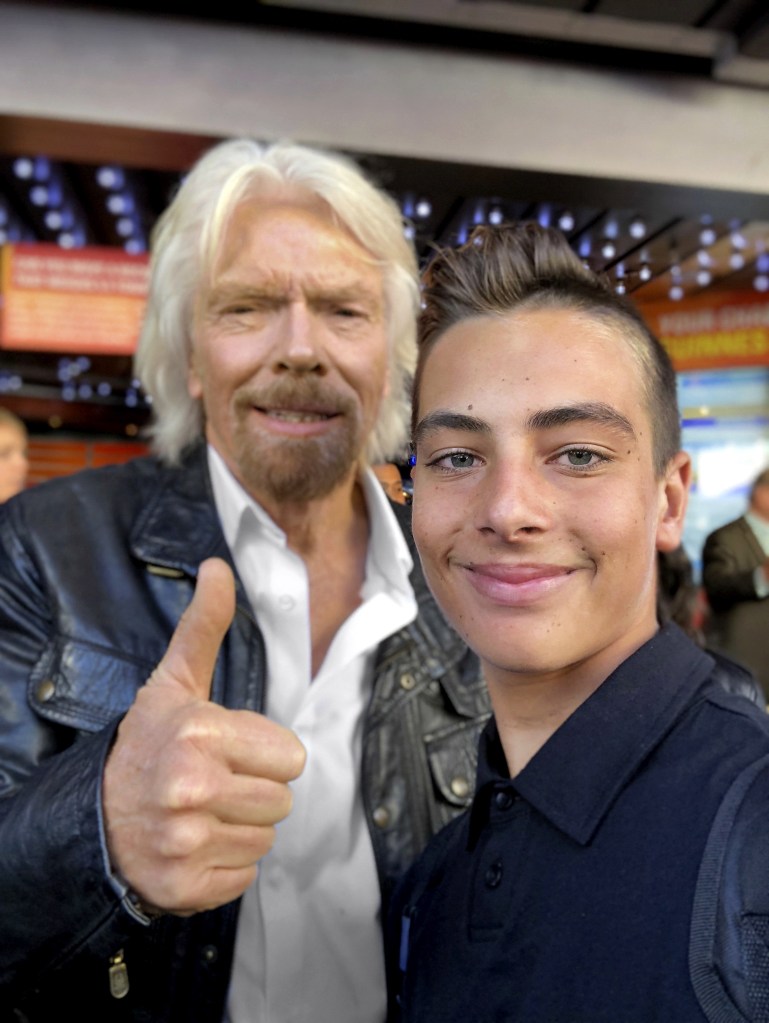Riding to Riches

Richard Branson, founder of Virgin Records, Virgin Airlines, and hundreds of other companies, paid Carson Kropfl $65,000 for a 20% stake in his company. What makes this especially remarkable? Carson was 11.
Getting on Shark Tank is not possible for all entrepreneurs, but more kids than ever want to start their own business. If you’re one of them, there’s a lot you can learn from Carson and his experience.

MAN WITH A PLAN Carson poses with a Locker Board. He grew this product from an idea into a thriving business.
COURTESY KROPFL FAMILYSolving a Problem
Carson came up with his idea because no company sold what he wanted. “Everything else fit into my locker—my books, my bag, my lunch—but not my skateboard,” he says. So in 2013, Carson broke the nose and tail off a full-size skateboard to make a locker-size board. Soon his friends were asking for them too.
At the time, Carson was saving for surfing lessons. His mom, Carrie, told him he needed to raise the money himself. He decided to sell the boards at school. For months, he sold them during lunch for $20 each, until he’d saved $1,000 for lessons.
After hitting his financial goal, Carson realized he liked running a business. He didn’t want to stop. “I knew I had something special,” he says.

DECIDING MOMENT Carson and his mom, Carrie, make their pitch to the sharks.
ERIC MCCANDLESS/ABC/SONY PICTURES TELEVISIONCarson was eager to grow his business. But he needed start-up capital. Again, his parents said he had to find a way to get it himself. “So that’s exactly what he set out to do,” Carrie says. Carson approached the company Vans to see if he could get some of their used skateboards for free. Vans set up a recycling program for him, and started giving him 50 used boards per month.
Sustainability has been part of Carson’s operation from the start. He ensures that every Locker Board is made from a broken or blemished skateboard deck that would otherwise go to a landfill.
Today, Carson works with manufacturer PS Stix to buy unwanted boards at a discount. They are cut to the perfect length for a Locker Board. Any imperfections are buffed out. “Sometimes, you can still see the old graphic behind the new graphic,” he says, “but that’s what makes my boards unique.”
Persistence Pays
Carson first applied for Shark Tank in 2013. The producers turned him down because his company wasn’t big enough. But he was persistent. Every six months, he checked in with the producers again. In 2017, they finally said yes.

MEGA MENTOR Sir Richard Branson’s investment and mentorship help Carson succeed.
COURTESY KROPFL FAMILYAt the shoot, Carson made his pitch, with the help of his mom. He was ready for the Sharks’ questions about his product, sales, and more. Sir Richard Branson wanted to invest. “There were about a thousand cameras pointed at me,” Carson says. “I just thought, ‘Wow. Now I work with Sir Richard Branson. This feels good.’”
Since then, Carson has sold more than 1,000 boards. His company has grown more than 300%. He plans to expand to Canada, the U.K., and Australia. He credits mentors such as Branson and Noah Murphy-Reinhertz, Nike’s head of sustainability. He also credits his mom, who has her own title at Locker Board: Chief Mom Officer. She runs day-to-day operations while Carson is in school.
His advice to other kids who want to start their own business? Ask for help when you need it. “The best part about being a kid entrepreneur is you don’t know everything,” he says. “It’s easy to ask people for advice. The worst thing they can say is no.”
Family Challenge
Locker Boards were created because Carson had a problem. Identify a problem in your life. Can you come up with a solution? How could you turn your idea into a business?
—By Kathryn Tuggle
Click here for the Grade 5-6 Teacher’s Guide.
Click here for the Grade 5-6 Paired Text.








